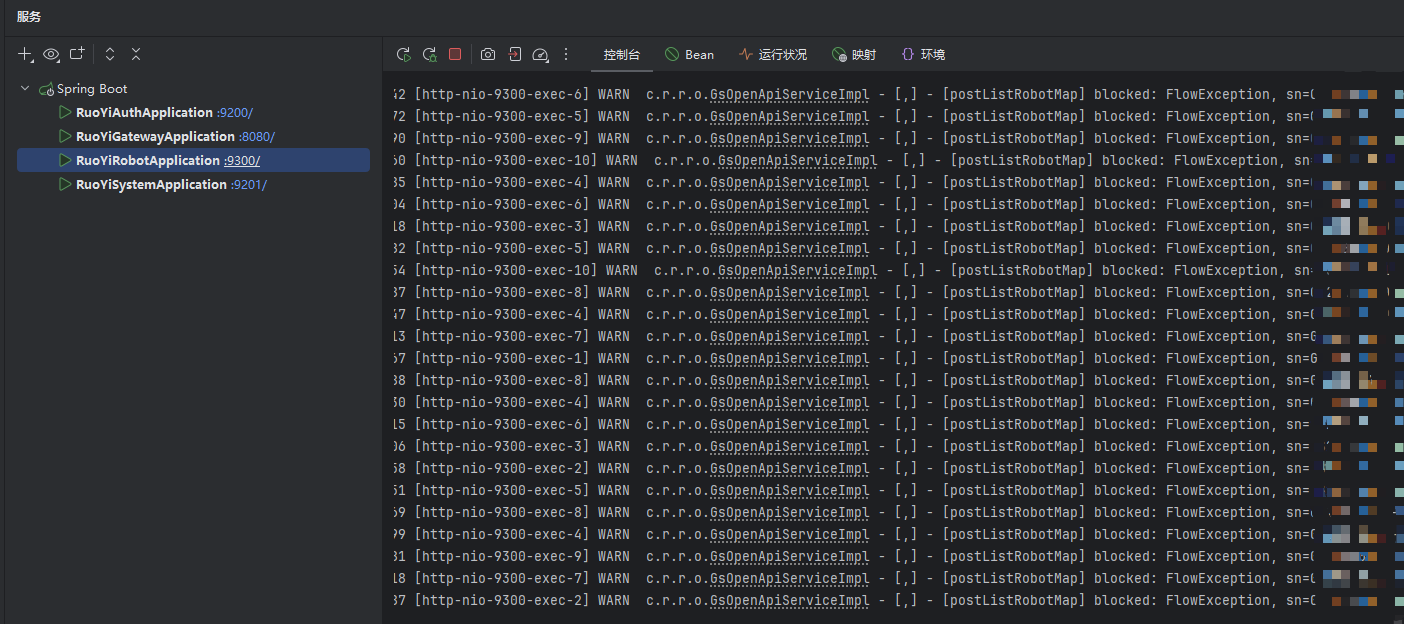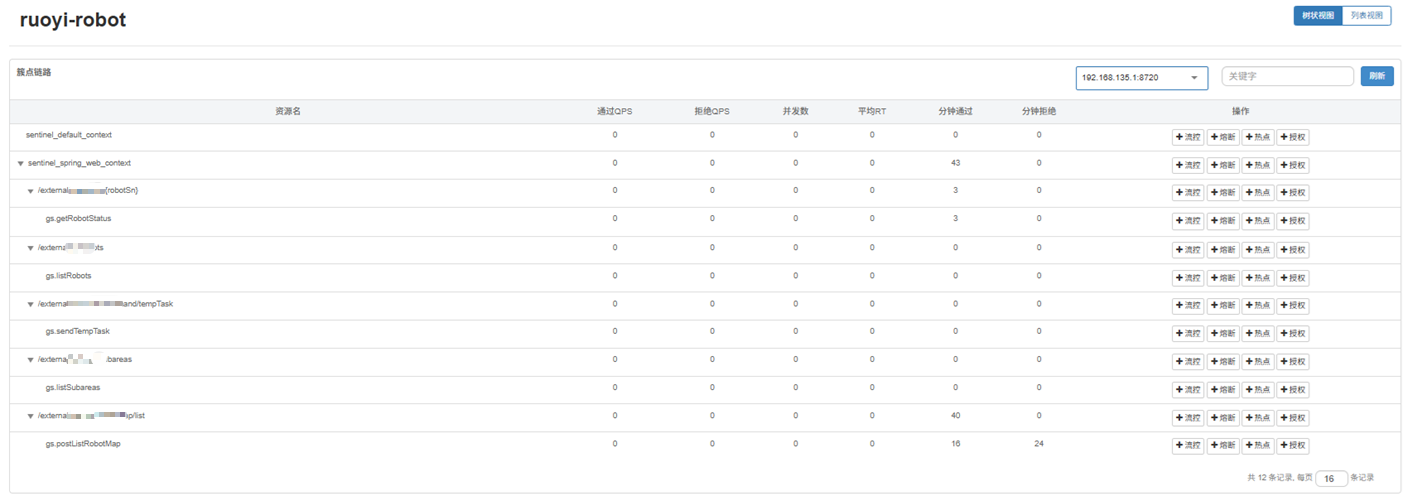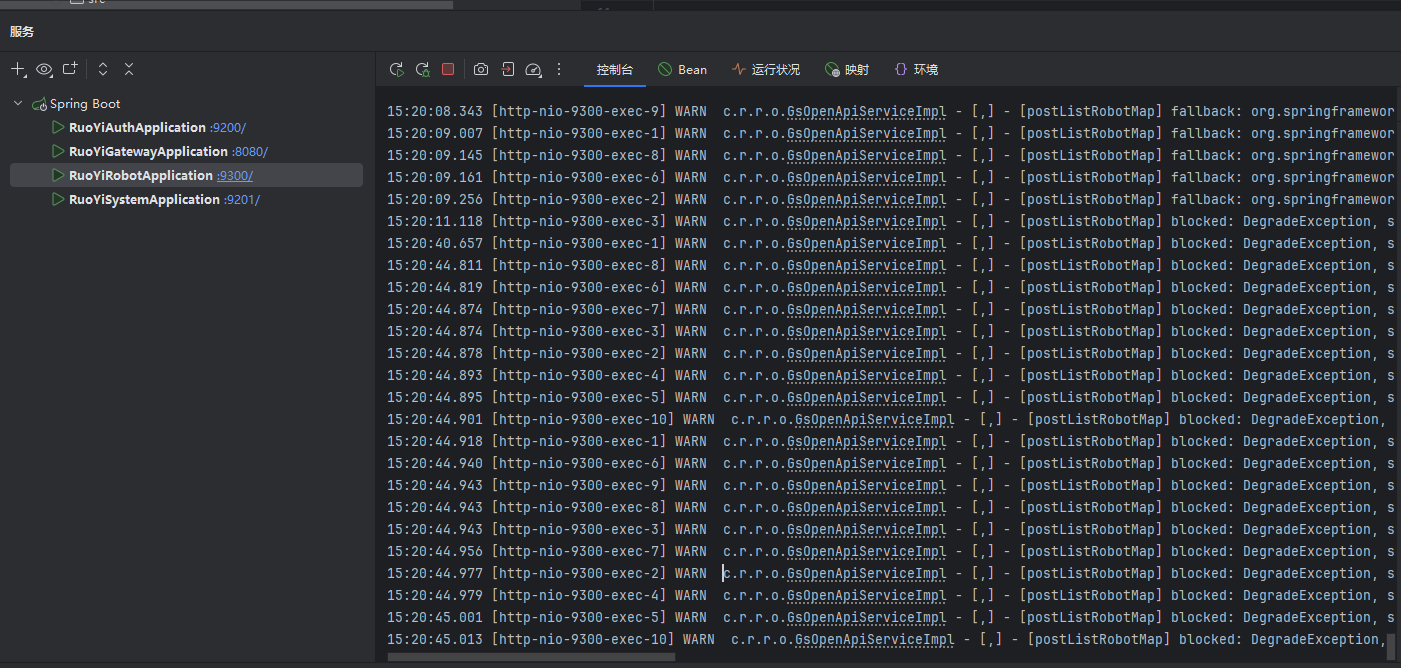Stability (Sentinel)¶
Goals: Flow limiting and Circuit breaking / Degrade.
Rules are centrally managed and delivered via Nacos.
Reads use short-TTL cache; writes fail fast (429/503) to avoid cascading failures.
1. Centralized Rule Governance¶
- Rule source: delivered uniformly from Nacos Config Center; resource names match code for easy troubleshooting and rollback.
- Guidance: apply short-TTL cache for read APIs; set fast-fail thresholds for write APIs to shorten recovery time.
2. Rate Limiting: Trigger Logs¶
- When
FlowExceptionis triggered, log a clear blocked record including resource name / trigger origin, etc. - Gateway/core services can provide different fallbacks based on the resource name.
3. Rate Limiting: Test Results¶
- Observe pass/reject QPS, concurrency, avg RT, and per-minute pass/reject metrics.
- Verify that the load test method and thresholds meet expectations (don’t drag down the main flow).
4. Circuit Breaking / Degrade: Trigger Logs¶
- Record the reason when
DegradeExceptionis triggered or a fallback executes to quickly locate the source. - Recommendation: isolate rollback/retry paths from the main flow to avoid avalanche effects.
5. Circuit Breaking: Test Results¶
- For key resources, monitor degrade count/duration, avg RT, and success rate to ensure no spread, no amplification.
- Convention: Fallback/BlockHandler for integration / task-dispatch APIs are aggregated in the Service layer (thin Controller).
- Resource names follow a unified convention (consistent with rules); inject
traceIdinto logs to enable trace ↔ log cross-checks.





